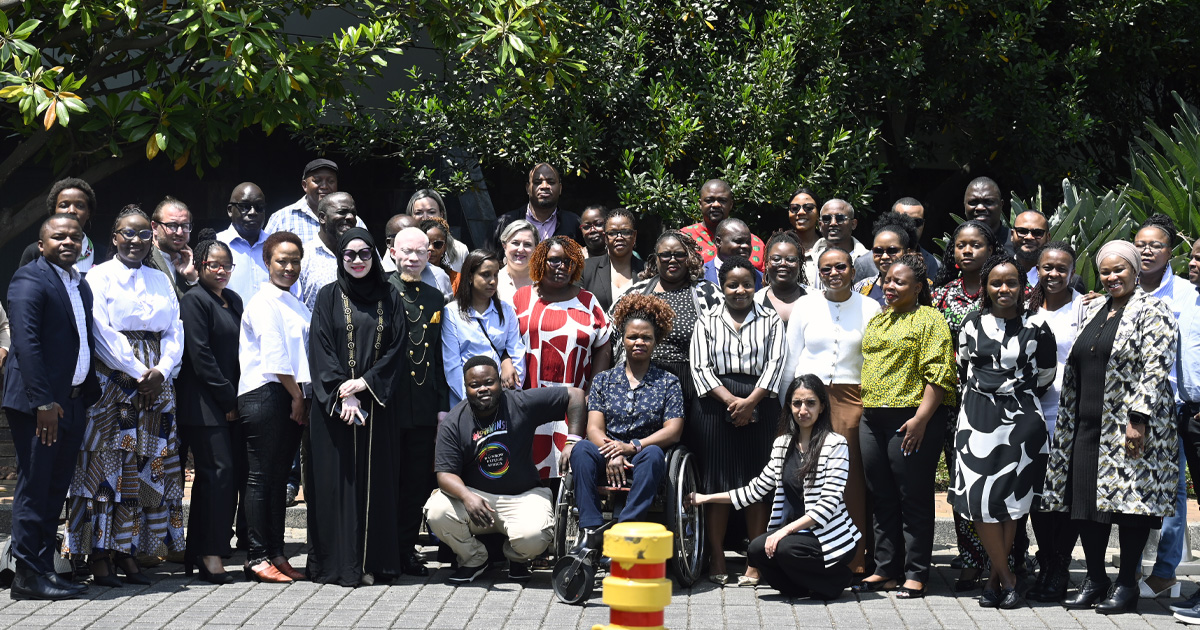From 4 - 5 November 2025, the Disability Rights Unit at the Centre for Human Rights, Faculty of Law, University of Pretoria hosted the ‘13th Annual disability rights in Africa conference’ under the theme ‘The African Disability Protocol: Promise and Challenges’. The conference was held in hybrid format at Southern Sun Hotel, OR Tambo International Airport and online via zoom. The aim of the conference was to critically engage with the substantive content of the Protocol to the African Charter on Human and Peoples’ Rights on the Rights of Persons with Disabilities in Africa (African Disability Protocol), and to interrogate strategies for its successful implementation in order to bring about the desired social change. The Conference brought together different stakeholders, including academics, civil society groups, policy makers and international and regional institutions, interested in advancing the rights of persons with disabilities in Africa through the implementation of the African Disability Protocol.
The conference commenced with the welcoming remarks by Prof Ebenezer Durojaye, Acting Director of the Centre for Human Rights. On day one of the conference, the presenters explored the way the African Disability Protocol addresses the rights of various sections of society, including women and youth. They also discussed key issues such as accessibility and reasonable accommodation; the protection and promotion of socioeconomic rights, particularly in relation to employment and education; and the implications of the Protocol for legal reforms across the continent.
In relation to rights of various sections of the society, participants underscored the African Disability Protocol has given due attention to rights of groups such as women and youth. They highlighted that the Protocol is important for advocates of disability rights, as it turns advocacy demands into legal obligations and serves as tool of accountability, reform and inclusion. They further noted that the Protocol aligns with the African Union (AU) Agenda 2063, particularly aspirations 1 and 6 as well as many of Sustainable Development Goals (SDGs).
Moreover, participants emphasised that accessibility and reasonable accommodation are enshrined in the African Disability Protocol as a fundamental requirements which enable persons with disabilities to fully exercise their rights and as an essential prerequisites for the realisation of other rights.
Regarding the implications of the African Disability Protocol for legal reforms, participants accentuated that implementation of the African Disability Protocol requires repealing laws depriving rights of persons with disabilities and enacting laws facilitating the implementation of the rights in the Protocol. They further highlighted that the legal reform should also extend to customary laws to ensure protection of rights of persons with disabilities affected by such laws.
Day two of the conference focused on the implementation of the Protocol and the role of various stakeholders including Organisations of persons with disabilities (OPDs) in the ratification and implementation of the Protocol. Speakers at the conference underscored that OPDs play a significant role in the ratification and implementation of the African Disability Protocol through their advocacy, promotional as well as monitoring works. Moreover, they noted that involving the religious and community leaders as well as families of persons with disabilities in the effort of the ratification and implementation of the African Disability Protocol is of a paramount importance to realise the promises of the Protocol. Furthermore, the need for employing strategic litigation and effective advocacy strategies to ensure the implementation of rights in the African Disability Protocol has been also stressed by participants of the conference.
Overall, the conference fostered meaningful discussions and reflections on the Promises of the African Disability Protocol and Challenges faced in the realisation of rights guaranteed by the Protocol and how these challenges can be eliminated or mitigated. The conference was concluded with the closing remarks of Prof Nkatha Murungi, Assistant Director of the Centre for Human Rights.
For more information, please contact:
Dr Dianah Msipa
Manager: Disability Rights Unit
Centre for Human Rights, University of Pretoria
Tel: +27 (0)12 420 6398
dianah.msipa@up.ac.za
